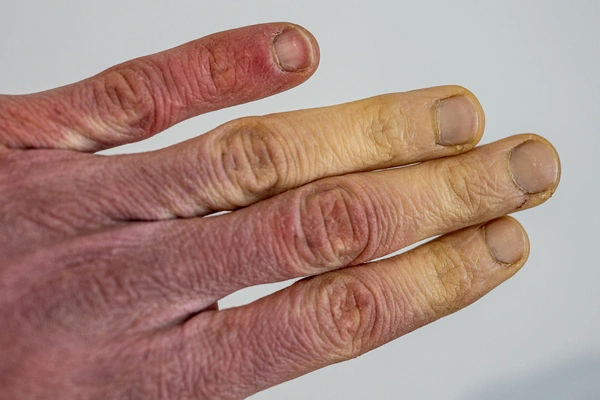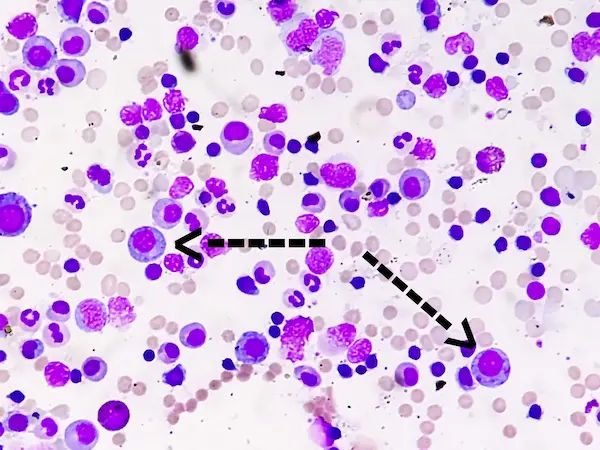- female
- 50 Years
- 29/01/2025
I'm a bit concerned because my ESR is 50 mmhr. Can you help me understand what that might indicate? I'm planning to see my doctor later today, but I'd love to get some insight in the meantime.
Answered by 1 Apollo Doctors
An ESR (erythrocyte sedimentation rate) of 50 mmhr indicates an elevated level, which can be a non-specific marker of inflammation in the body. It is often used as a screening test to help diagnose conditions associated with acute and chronic inflammation, such as infections, autoimmune diseases, and certain types of cancer. However, it is important to note that an elevated ESR alone is not diagnostic of any specific condition and further evaluation is usually needed. Since you are already planning to see your doctor in the evening, it would be best to discuss your ESR results with them. They will be able to interpret the result in the context of your overall health, medical history, and any other symptoms you may be experiencing.
Dr. Mubarak Suggests...
Consult a Rheumatologist
Answered 04/07/2025
0
0

More Rheumatology Health Queries
View allLately, I've been having this recurring fever for about a month and a half now, and along with it, there's been this nagging joint and body pain. It's really starting to worry me. Could you advise on what kind of tests I should consider getting done?
Get a complete blood count (CBC) test to check for any signs of infection or inflammation in your body. Additionally, a test for dengue fever or chikungunya may also be considered based on your symptoms. Please consult with your healthcare provider for further evaluation and management.
Answered by 1 Apollo Doctors
Can you explain what the ESR test involves? My mom has diabetes, and I've been told she's having issues with her ESR levels. I'm hoping to understand more about what this means for her health.
The ESR (Erythrocyte Sedimentation Rate) test measures inflammation in the body by assessing how quickly red blood cells settle in a test tube, with high ESR levels indicating chronic inflammation, which can be associated with various conditions, including diabetes, infections, and autoimmune disorders, and as your mother has diabetes, an elevated ESR may indicate underlying inflammation, which can increase the risk of complications
Answered by 1 Apollo Doctors
My ESR reading came back as 34 mmhour. I'm a bit worried about it. Is that something I should be concerned about at my age of 47? Could you give me some advice on how I might reduce it?
Patient is advised tab augmentin duo 625mg thrice daily, for 5 days, tab pan d,orally once daily for 14 days ,syrup sucralfate 10ml thrice daily for 14 days.Also avoid spicy and hot items is advised to the patient.
Answered by 1 Apollo Doctors
Disclaimer: Answers on Apollo 247 are not intended to replace your doctor advice. Always seek help of a professional doctor in case of an medical emergency or ailment.





